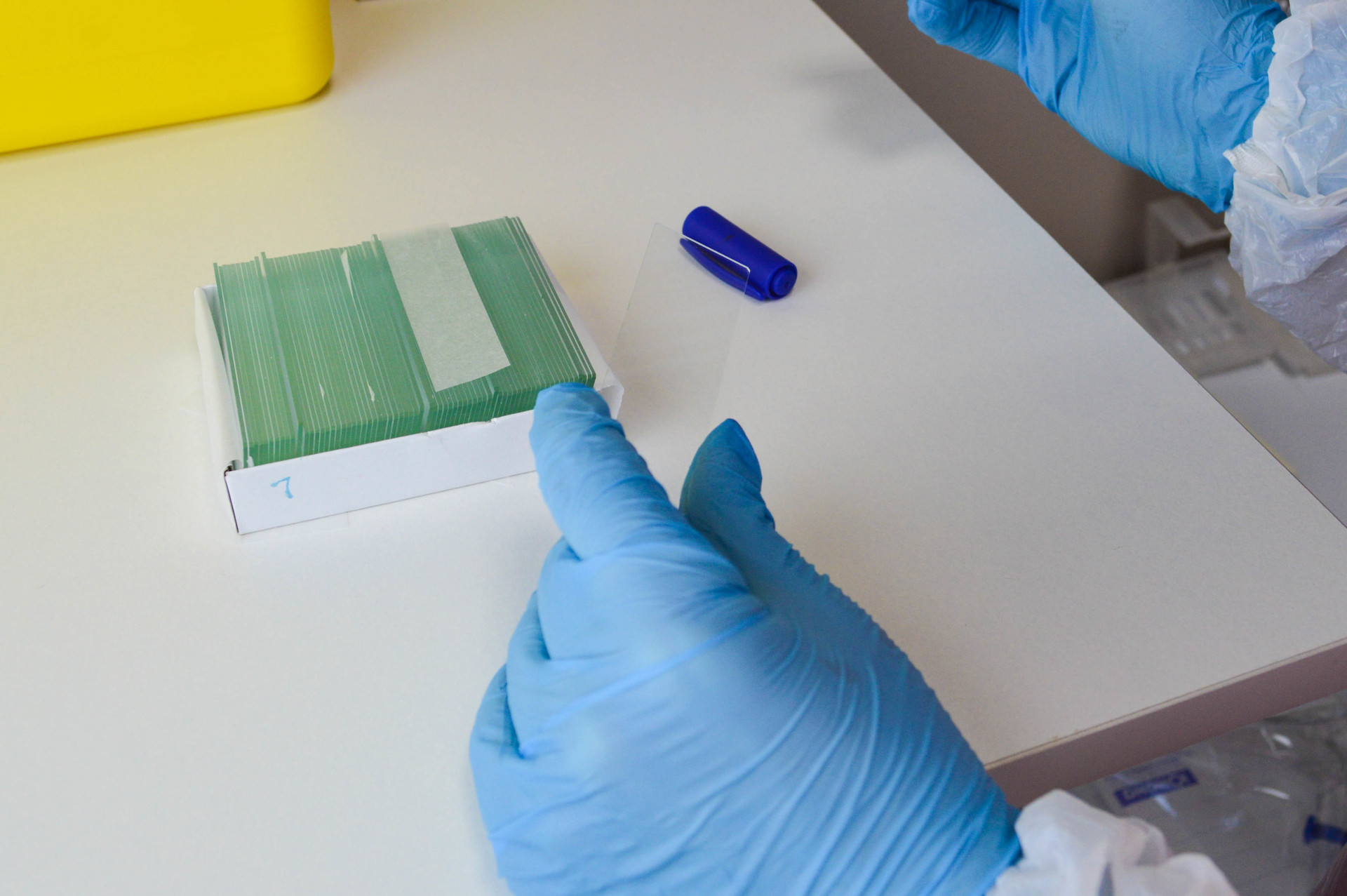Expert opinion and online consultations available on your computer or any mobile device. The service is available wherever there is an internet. All you need is a PC or a smartphone.
Second opinion on digital pathology
In a conventional histopathological examination, a sliver of tissue dipped into a series of stains or dyes to reveal its certain features, and placed on glass slides (the so-called “histological slides”) are examined under a microscope. Thanks to modern technology, they can now be scanned to transmit the obtained digital to any distance, for example, to be reviewed by another expert.
Digital pathology
The sub-field of pathology that deals with the examination of scanned histological slides is called “digital pathology”. The technique of obtaining samples during biopsy or surgery, their laboratory processing and drawing conclusions relevant for therapy planning remain unchanged, but the pathology findings are evaluated in a digital format with the help of special software.
This process requires a number of special tools.
Scanner
Histology slides are digitalized using a special scanner. Such devices can have different shapes and sizes, and they are capable of scanning from 1 to 1,000 slides at a time. The resulting high-resolution digital files can be up to 10 gigapixels in size.
Image viewing software
Once the file is created, special software often compresses the image to make its size optimal for viewing and analysis. The digitized slide can then be viewed on the screen of any device.
Display
The image content of the microscopic slide is displayed on the monitor screen with the help of appropriate software. Thus, the pathologist will view the tissue sample on a display instead of using a microscope.
Digital slides help get a second opinion
Thanks to digital pathology tools, files with slide images are easily transmitted to any distance, and the same image can appear simultaneously on monitors located in different laboratories. This makes it possible to review histology results in the shortest possible time and get a second opinion from a pathologist with the necessary subspecialty or expertise in a particular disease and, if needed, arrange a peer discussion of the results.
What is the service about?
A digital pathology second opinion is a service which makes it possible to get a remote consultation of a qualified pathology specialist, based on the analysis of slides prepared in the primary laboratory and provided for evaluation as scans, i.e., in a digital format.
It might be helpful:
- to confirm the existing diagnosis;
- to make sure that the recommended treatment, e.g. a surgery, is correct;
- to obtain a higher quality assessment of histologic and immunohistochemical features of tissues resulting from the review of pathology slide scans;
- to get an expert opinion if the pathology examination has been performed in a sufficient volume;
- to make the right choice if there are two or more possible therapeutic options.
WHAT WILL THE CLIENT GET?
A diagnostic conclusion with a histopathological diagnosis, based on the available data. If the data is insufficient, additional exams will be recommended.
WHAT DATA SHOULD BE PROVIDED TO GET A SECOND OPINION?
Digital:
- Files with slide scans (required), up to 12 files are included in the basic price
Written:
- Original pathology report (required)
WHAT ARE THE SECOND OPINION FORMATS AND TERMS?
-
Written second opinion:
A written pathology report including the evaluation of scan imaging and histological/immunohistochemical conclusions.
Specialists in Second opinion on digital pathology
You do not have to spend hours getting through busy hospital lines, or sitting in waiting rooms. Expert advice will be delivered fast and free of your effort.
Sort by: [[ s.txt ]]sortsort
Nothing found, try changing search options
